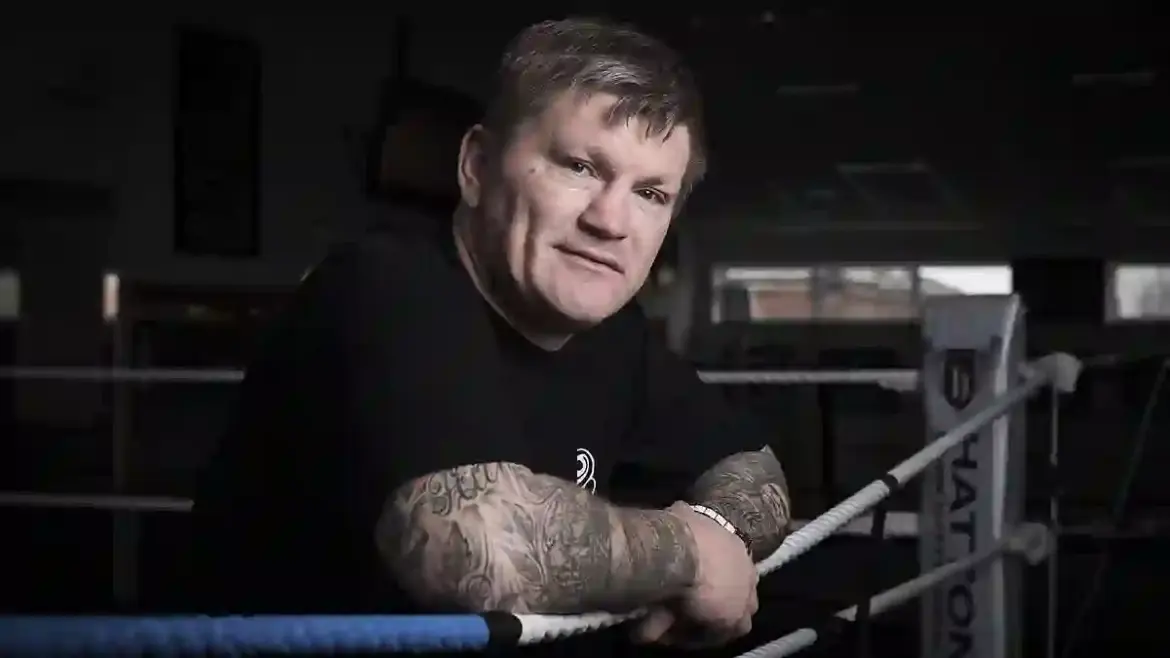Ricky “The Hitman” Hatton wasn’t just a boxer—he was a larger-than-life character who connected with ordinary people in a way few athletes ever do.
But behind the roaring crowds, the big Vegas nights, and his everyman charm, Hatton carried struggles that eventually weighed heavier than any opponent he faced in the ring.
The former world champion was found dead at his home near Hyde, Greater Manchester, at the age of 46.
Police confirmed his passing is not being treated as suspicious, leaving fans, friends, and fellow fighters mourning a man whose story was as inspiring as it was tragic.
A Mother’s Tough Love
Those closest to Hatton knew he listened to just one voice above all others—his mother, Carol.
After his crushing loss to Floyd Mayweather in Las Vegas in 2007, she reminded him of life’s bigger picture: “You’re 29 years old.
You’re a millionaire. You’ve got a family and your health. It’s just a boxing match.”
But for Ricky, every fight was more than just sport. It was the anchor that kept him steady.
Without boxing, he struggled to find the same purpose and stability.
The Rise of a Working-Class Hero
Born in 1978 on the Hattersley estate in Hyde, Hatton first put on gloves at 11 after being bullied.
By 18, he was trading his work as a carpet fitter for the professional boxing ring.
His talent was undeniable—by 1999 he had been named Britain’s Young Boxer of the Year, and just two years later he claimed his first world title.
Fans adored him for being relatable. He wasn’t just a champion; he was the lad who loved his “mega breakfasts” at the local café, sang along with Oasis, and had a pint while watching Manchester City.
That down-to-earth swagger made him a hero to thousands who saw him as one of their own.
Vegas Nights and the Mayweather Defeat
Hatton’s biggest stage came in 2007 when he faced Floyd Mayweather.
Over 35,000 British fans flew to Las Vegas—joined by celebrities like David Beckham, Tom Cruise, and Brad Pitt—to cheer him on.
But the night ended in heartbreak. Hatton was floored twice and couldn’t recover, despite begging his corner to get him back up.
His girlfriend, Jennifer Dooley, sobbed ringside.
For Ricky, the defeat shattered his confidence. “Me head fell off after the Mayweather fight,” he admitted later.
Fighting Demons Outside the Ring
Even as he staged comebacks—including a triumphant win in front of 55,000 fans in Manchester—Hatton’s battles away from the ring grew darker.
He struggled with alcohol, drugs, and depression.
A notorious video once showed him on a 10-hour binge, downing pints and cutting lines of cocaine.
His personal life was turbulent too, with high-profile relationships, including a brief romance with actress Claire Sweeney, and painful breakups that left him reeling.
Eventually, even his family ties became strained, deepening his sense of isolation.
Hitting Rock Bottom
After his split from Jennifer Dooley, with whom he shared two daughters, and tensions with his parents, Hatton confessed he reached a breaking point.
“I wanted to kill myself,” he said openly in later interviews.
Instead, he sought psychiatric help and began speaking publicly about mental health—something that made him a different kind of champion to many who admired his honesty and vulnerability.
A Community in Mourning
Outside his home, fittingly named The Heartbreak, fans have laid flowers, boxing gloves, and Manchester City scarves in tribute.
Fellow athletes also shared their grief.
Wayne Rooney called him “a legend, a warrior and a great person,” while promoter Frank Warren hailed him as “a man of the people.” Boxer Amir Khan summed it up: “Sometimes the hardest fight happens in silence, in the mind.”
A Humble Farewell
Even at his lowest, Hatton thought first of his city and supporters. “I hope I did Manchester proud,” he once said.
That humility defined him just as much as his thunderous punches and his unforgettable nights under the lights.
